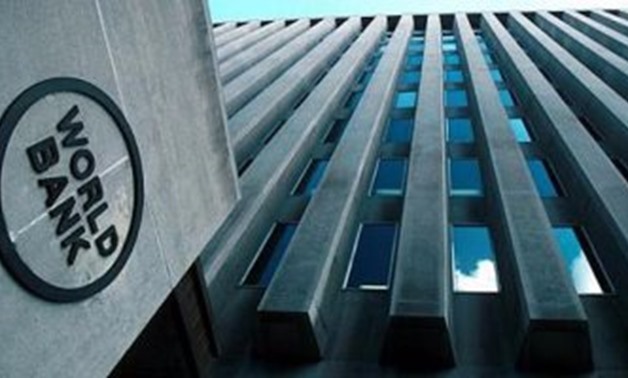
File - World Bank
CAIRO - 16 July 2019: The World Bank issued on Tuesday a report titled “The Egyptian Economy Observatory” in a press conference held at the headquarters of the Ministry of Investment and International Cooperation.
The conference was attended by Minister Sahar Nasr, World Bank Country Director Marina Wes, and Senior Economist at the World Bank Hoda Youssef.
The report stated that the Egyptian government has been executing a crucial economic reform program since 2016 to accomplish economic stability and restore trust in the Egyptian economy. The most important reforms are enhancement of the investment climate, attraction of private investments, and legislative reforms embodied in new investment laws pertinent to restructuring, and bankruptcy.
The report highlighted that the second batch of economic reforms will consist of stabilizing the economy, enlarging the role of the private sector, creating more jobs, qualifying more labor with the necessary skills, and improving the quality of life of citizens.
The report underlines that the economic reform program made investments and net exports the main drives for GDP growth instead of consumption. The outcome is that the economy grew by 5.3 percent in FY2017/2018 compared to 4.2 percent in FY2016/2017. The average GDP growth rate between 2013 and 2016 is 3.5 percent. In the first half of the last FY2018/2019, the GDP grew by 5.4 percent.
The report indicated that for the first time since FY2008/2009 the private sector has become the main drive for economic growth in FY2017/2018. The shares of the private sector and total investment in that growth are 1.3 percent and 2.4 percent, respectively.
The report estimates that the GDP growth will continue rising until it records 6 percent in 2021. It also estimates that private investments will continue to increase as a result of the prospective reforms relevant to the investment climate. It estimates the same for public investments, particularly in the infrastructure sector.
Exports are expected to rise gradually, if the revenues of tourism and the Suez Canal continue to surge. That is in addition to the expected huge increase in oil exports. Also, FDI is expected to continue rising until it hits 3 percent in 2021.
The report highlighted that there are many unexploited growth opportunities in the Egyptian economy, particularly in the export sector in light of the many trade agreements Egypt is part of.
Minister Nasr affirmed the strong relation Egypt has had with the World Bank over the past period pointing out to the partnerships the country has with the World Bank with regard to the economic reform and the development of education and healthcare.
The minister clarified that the bank is contributing to the presidential initiatives on investment in human capital and infrastructure. The minister stated that there are talks with the bank on the “Doing Business Report” it will issue in a few months.
The minister declared that there are talks with the bank on ways to attract more investments. That is because Egypt is trying to take benefit of the views of the international organizations to improve the investment climate and bolstering the participation of the private sector in mega projects such as Benban Solar Park, which got the World Bank’s Best Project Award.
World Bank Country Director Marina Wes affirmed that the bank will continue to work with the Ministry of Investment and International Cooperation. Wes stated that the report presents the Egyptian government’s achievements and the World Bank’s vision for the sustainability of such accomplishments.
Wes affirmed that Egypt has achieved a lot when it comes to sustainable development and economic growth which has become among the highest in the world. She pointed out that the report focuses on the opportunities available to ensure the continuity of the economic growth and the increase of exports.
Senior Economist at the World Bank Hoda Youssef presented the report that showed a decline in unemployment, the positive response of economic indicators to the economic reforms undertaken, and the rise of Egypt’s credit ratings.
For the social safety network, the report showcased the monetary subsidies programs targeted at poor families, and the efforts deployed by the government to achieve financial inclusion. The report finally highlighted that executive policies and social programs have been put to boost expenditure on education, healthcare, social safety programs, and expansion in public services offered through efficient spending.

Comments
Leave a Comment